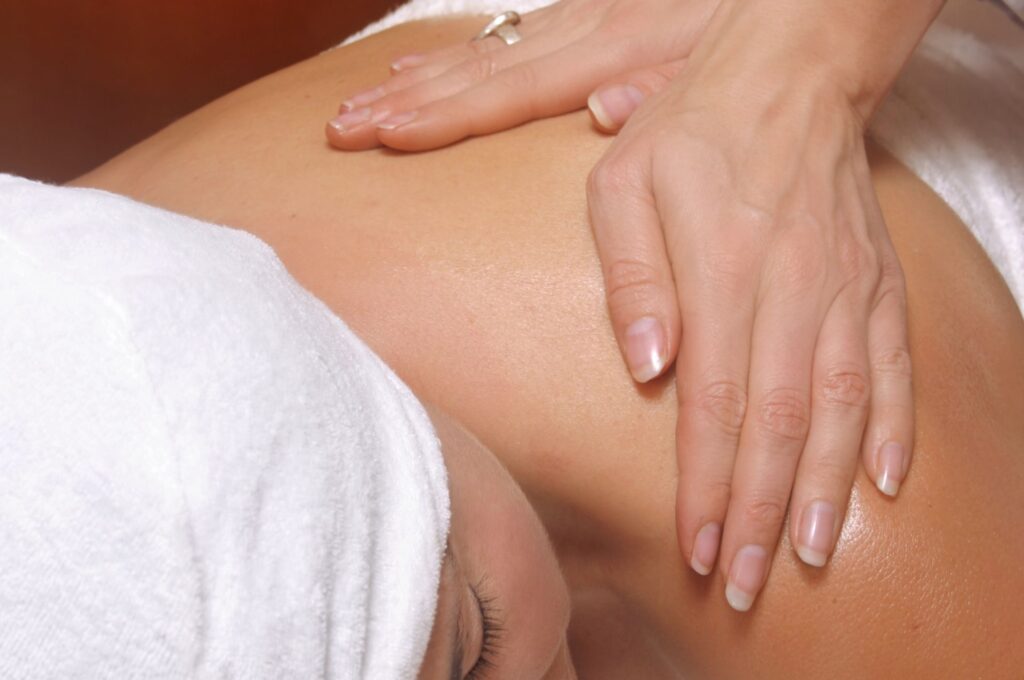Background and Physiological Effects of Massage Therapy
Almost every culture has its own massage therapy system, including pressing and rubbing a specific area of the body to reduce muscular pain and burden. Massage therapy dates back to 1600BC, and Hippocrates mentioned the application of massage therapy in his famous book, Canon, around 400 BC. Before shifting to biological sciences in the early 20th century, massage was a pillar of medical treatment in scientific societies. However, in the 1970s, it regained popularity in the United States, expressly to relieve athletes’ sports injuries. Over the last 3 decades, the therapeutic application of massage therapy has increased, and its psychological, physical, and physiological aspects have been investigated in more depth.
What Are the Major Benefits of Massage Therapy?
Massage therapy can relax the body and mind by dilating blood vessels, which improves blood circulation, increases skin temperature, and decreases heart rate. It also reduces the lactic acid build-up and accumulation in the muscles, which enhances connective tissue healing and recovery (read more here about the benefits of massage therapy). It also has been shown that massage can increase the number of natural killer cells in the body that correlates to a supercharged immune system (massage therapy and enhancement of immune system cytotoxic capacity).
In massage therapy, a combination of particular hand movements such as rubs, strokes, and pressure in different intensities are applied to the soft tissues, which can be tailored based on the patient’s needs. Massage comes in various forms and practices, including sport, Swedish, deep tissue, shiatsu, and neuromuscular, and professional massage therapists receive extensive theoretical and hands-on training.
Massage can also be used in patients with life-threatening diseases such as cancer to alleviate their pain and burden during the illness or improve their overall well-being and mood.
The Rationale for Using Massage Therapy in Cancer Patients
Cancer patients may suffer from a variety of psychological and physical symptoms such as anxiety, stress, pain, nausea, and constipation due to the tumor burden or the side effects of cancer treatments, including lymphedema and post-operational pains.
To emphasize the burden of psychological side effects of cancer, it is worth noting that depression and anxiety in 4 folds higher in cancer patients compared to the general population (read more here). In a study published in 2000, it has been shown that 26% of the cancer patients at M.D. Anderson Cancer Center, used massage therapy to alleviate their cancer treatment symptoms (alternative medicine and cancer patients). In a survey conducted in 2004, 60% of hospices mentioned that their patients used various forms of complementary medicine, mainly massage therapy, to alleviate their disease burden (read more about this study here). Despite the availability and popularity of massage therapy for cancer patients, it has been widely neglected to control the symptoms and alleviate the burden of the disease.
The Major Benefits of Massage Therapy for Cancer Patients
Decreasing distress and anxiety is the main benefit of massage in cancer patients. Massage therapy has also been shown to reduce pain in patients significantly. In a large study conducted on about 1300 patients over the course of 3 years, an average of 50% symptomatic improvement in the patients ranging from 52% for anxiety and 21% for nausea, were observed, which lasted for at least 48 hours. Other symptoms such as fatigue, depression, and pain also showed clinically significant improvement (read more about this study here).
Manual Lymphatic Drainage (MLD) is a specific type of massage used to decrease lymphedema in breast cancer patients. This particular technique is mainly used in combination with exercise, compression garments, and skin care. In a study including 31 patients with lymphedema, limb volume, heaviness, and pain significantly decreased, and sleep quality improved after the massage therapy (manual lymphatic drainage therapy).
Abdominal massage is also used in cancer patients to reduce constipation after chemotherapy. Massage therapy is also advocated in cancer patients to promote wound healing, diminish scar formation after the surgical procedure, and release metabolic wastes by increasing blood and lymph circulation. It also showed positive effects on improving the immune response in the patient’s body.
At Centre of Wellness, we offer a comprehensive and professional range of online massage courses, including Swedish massage and aromatherapy oil massage. Now you can learn about massage therapy online, flex-time, and from any location. You’ll learn via comprehensive theory books, step-by-step written instructions, and hands-on procedural training videos.

